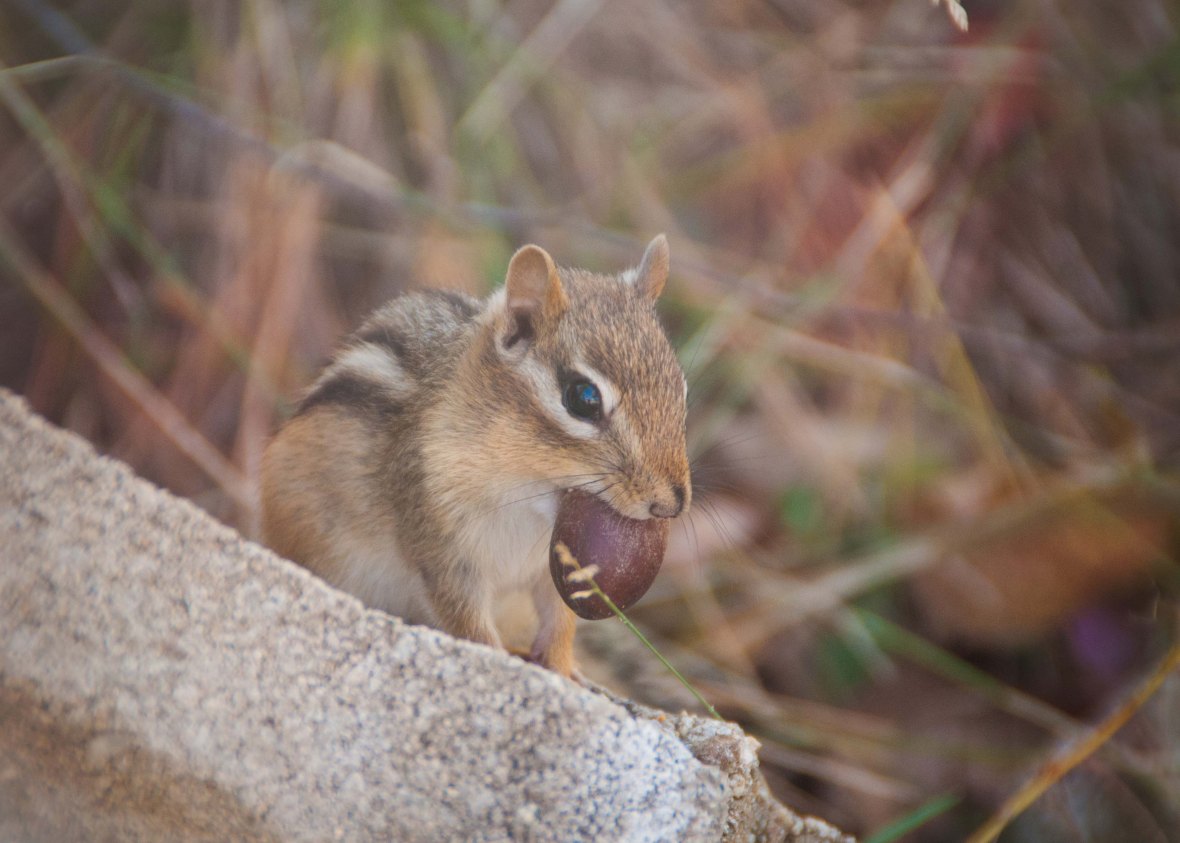
The Art of Ecology
Building visual connections between people and nature.
I’ll gladly go bungee jumping or skydiving. Not much scares me, yet for some strange reason, I gasp at small things. A door closed unexpectedly? Gasp. Did a leaf fall on my shoulder? Gasp. I’m startled for a fraction of a second and react. Who knew that this is a similar trait to shy, cute, forest-dwelling rodents?
Chipmunks & Vocalizations
Studies show that Chipmunks can have personality. They can be bold or they can be meek. How do we know? By observing vocalizations and recognizing patterns.
Scientists attached microphones to several chipmunks and recorded all sorts of valuable sounds! They were able to determine that chips, chucks, and trills are the main sounds that a chipmunk makes and that the chipmunk will use those noises in different patterns to relay messages. For instance, a quick, high-pitched chip says “BE AWARE,” if there is a predator close by, while the same chip followed by a rapid trill may say “DANGER! I’m being actively chased!” Lower pitched chucks are often used while protecting territory.
Just like us, chipmunks also use body language. They lay their ears back and fluff up to look large and aggressive. They may shrink and lower themselves to look submissive.
Personalities of Chipmunks
As scientists observed these vocalizations and postures, they realized something amazing. Individual chipmunks have personalities! Bold chipmunks only chipped if there was a real threat. They also took initiative during aggressive encounters and tried to look and sound as threatening as possible. Typically, if a chipmunk is close to its home, it will win territory disputes, but the bold chipmunks regularly won regardless of if the fight was on their home turf or not.
Shy chipmunks, on the other hand, are quick to surrender. In a fight, they make less vocalizations and try to get as small as possible. Yet, funnily enough, they chip “Danger!” much more often. These shy chipmunks have been known to chip at a gust of wind or a falling leaf (I can relate…). Unfortunately, the rest of the chipmunk population figures that this is the “Chipmunk who cried wolf” and ignores it, even if a threat is real.
While thinking that self-esteem or pride are the same across all animal species isn’t quite appropriate, it is interesting to see similarities between how human and other mammals brains work and can therefore gain a new appreciation for the little cuties!
The chipmunk pictured here lives in Sabattus, Maine and was particularly fearless. This “bold” chipmunk knew that I was no predator. It did not sound any warnings as I have found many other Pennsylvania chipmunks do. Next time you see (or hear) a chipmunk, try to figure out what it’s trying to communicate – if it’s in danger or if it’s just a shy chipmunk gasping unnecessarily.
Chipmunk Vocalizations – A National Geographic video

Supporting The Art of Ecology through the online shop or by becoming a Patron at any tier on Patreon can help keep educational content coming!


Chippys are our friends! You are like the 90 Second Naturalist on NPR, informative and a little bit quirky. Makes me smile…and look at chipmunks differently!